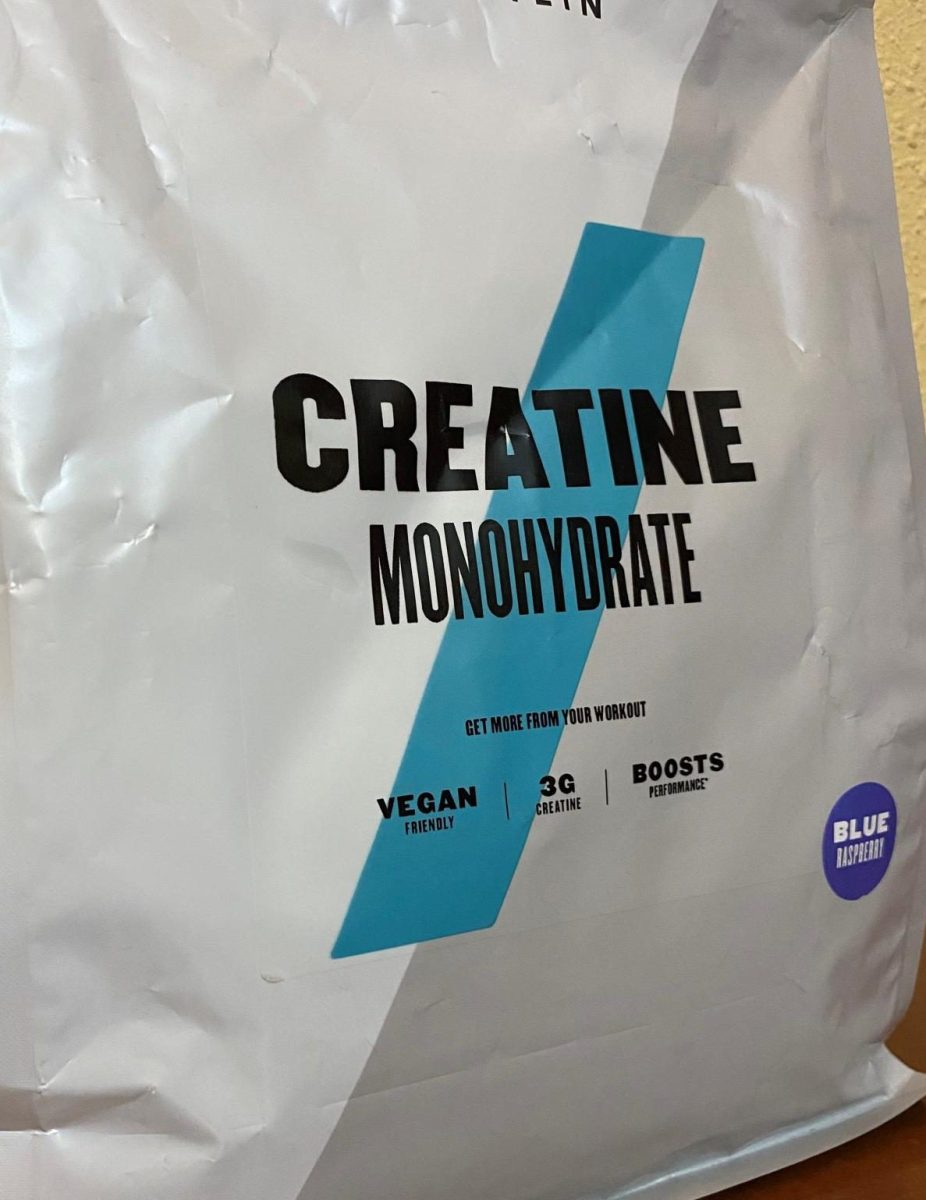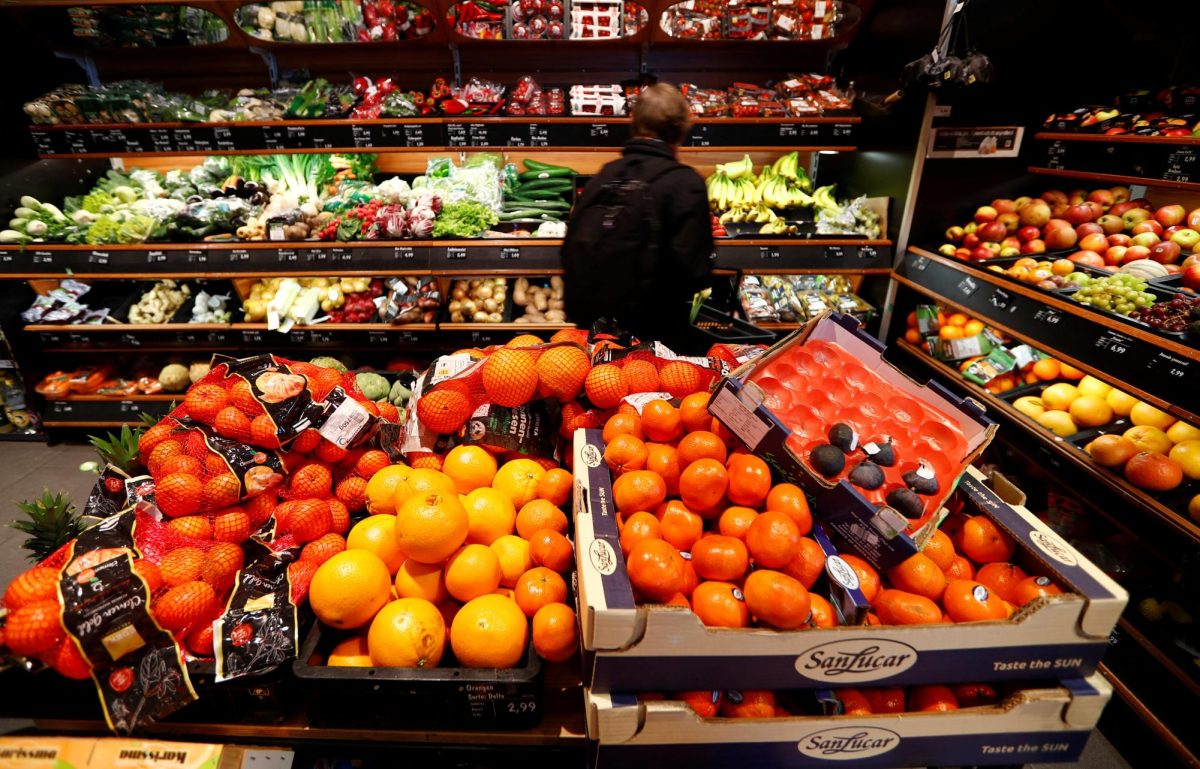Dear America: Take Care of Your Physical Health
America the Unhealthy
May 20, 2022
Have you ever seen the movie WALL-E? It’s a Pixar movie set in a distant future where humans treated the earth so poorly that they had to flee it. Well, not only did they treat the earth poorly, they treated their own bodies equally as bad.
You see, they ate themselves into being unable to walk and thus had to use vehicles to transport themselves. As light hearted and comical as the movie was, this could be an insight into our very own future.
Hear me out.
We live in a time when fast food companies are creating marketing campaigns aimed at children. Why would they do that in the first place? Children can not drive cars nor pay for their own food. So what reason would they have other than the obvious: for them to ask their parents. Well, they know that it will affect them in their long term eating habits thus creating loyal customers.
US News reports, “In 2019 alone, 2- to 5-year-olds saw an average 830 fast-food TV ads; 6- to 11-year-olds saw 787 ads; and 12- to 17-year-olds saw 775 ads, her team reported,” [1]. Exposing children to fast food early on can promote long term negative eating habits that will benefit these companies. “Food marketing has a direct, powerful impact on young people’s food preferences. It affects eating behaviors and influences diet, weight, and health in many negative ways,” [2].
America has an indisputable problem: our physical health.
We are as unhealthy as we have ever been. Yet, we have the most technological advances and opportunities we have ever had to be physically well. As of 2018 the US obesity rate was 42.4%. This is up from 30.5% in 1999 and it is not expected to slow [3]. This is a real pandemic that we should be concerned about.
As one becomes more unhealthy, risks of heart disease, stroke, type 2 diabetes, and certain types of cancer skyrockets. It can be linked to over 60 chronic diseases. Interestingly enough, the leading cause of death in the US is heart disease. In 2019 alone, 696,962 US citizens passed away due to this dangerous illness [4].
It’s not even just the physical health that is at stake when one is unhealthy. Their mental health suffers too. A study done on the mental health of patients with “excess weight” found that they had a 55% increase in chance of developing depression in their life [5].
However, one can still be unwell physically without being obese. On any given day over 36.6% of Americans will eat fast food [6].
Additionally, the CDC estimates that 80% of Americans do not get enough exercise. Additives surround us, found in almost all of our food. These additives change our bodies, and not for the better.
Take Red Dye 40 for example. It can be found in yogurts, chips, pastries, cereals, and much much more. Making up 40% of the 15 million pounds of artificial dyes that are dumped into foods every year [7]. Keep in mind that this is FDA approved. Surely it is ok then, right?
Well, maybe not. Red Dye 40 is made from petroleum: the liquid that is extracted to make gasoline and diesel oil. There have been studies of the effects of Red Dye 40 mostly on rats. “Most studies of Red 40 have been done on mice, and Red 40 did quite a number on the little guys. It caused adverse reactions in the rats, as they had lower reproductive success, a reduced weight of both parents and their offspring, decreased brain weight, and a lower chance of survival for newborn rats” [8].
Let us not forget that at one point Red Dye 2 was approved by the FDA. However, in 1976 they had to overturn the use of it because it was shown to cause cancer in rats [9]. So they will understandably overturn something for causing cancer in rats, but not overturn something for creating reproductive issues and lowering the survival rates of newborn rats?
Interestingly enough, just recently the European Food Safety Authority recommended limiting children’s intake of Red 40.
Unfortunately, this is just one of the thousands of additives found in our foods that we consume every single day. It is seemingly inescapable.
There is no easy fix to our national health crisis. To be healthy is not easy in a time when frozen pizza is at your fingertips, jobs require nothing more than sitting and typing, and additives in food are everywhere.
That does not mean we should not try though. As humans we receive one body. It is our job to take care of it. You only disservice yourself when you treat it poorly. To be healthy is to be happy. “Eating healthy” is associated with higher feelings of long term well being [10].
People will argue that financial stability is the key component to obtaining good health. They argue that wealthy people have more finances to pay for expensive organic and natural foods. Yet, even when America was compared to other rich countries, it still ranked poorly. According to the National Library of Medicine, “The U.S. health disadvantage cannot be attributed solely to the adverse health status of racial or ethnic minorities or poor people, because recent studies suggest that even highly advantaged Americans may be in worse health than their counterparts in other countries.” While these things still do play a role in some sense, it is not an excuse to treat your body poorly with mass amounts of processed foods and a lack of exercise.
Take a look at this quote by the US Department of Agriculture: “For all metrics except the price of food energy, the authors find that healthy foods cost less than less healthy foods (defined for this study as foods that are high in saturated fat, added sugar, and/or sodium, or that contribute little to meeting dietary recommendations),” [11].
As I previously said, being healthy is no easy feat. It seems though, that eating whole foods, as in foods that are in the most natural state possible, is the key to being healthy (in addition to exercise of course). Whole foods are what our body has been accustomed to for thousands of years up until industrialization allowed for mass production of food. It is what we have always been eating. Why are we suddenly changing this?
“The more we learn about nutrition, the more it seems we should eat the way people did a hundred years ago. Recent research appears to be pointing us in the direction of eating mostly “whole foods” – that is, foods that are as close to their natural form as possible,” [12].
Whole foods are superior to processed foods for a variety of reasons.
- They are full of phytochemicals. These are biologically active food components. They come only from unprocessed plants. They protect cells from damage that leads to cancer.
- Whole foods are chock full of nutrients that processed foods lack. From Vitamin A, Vitamin C, Magnesium, to Potassium and various others, all essential to our bodies. These help to lower chances of cancer, heart disease, high blood pressure, and diabetes.
- They contain good fats. Not as many bad fats like saturated and trans fats, and more good ones like Omega-3.
- Lastly, they have far less chemicals and additives in them. No seed oils in a fish or steak.
No one is perfect. Everyone eats poorly and binges watches a tv show here and there. However, it is a mistake to live a life of this.






































